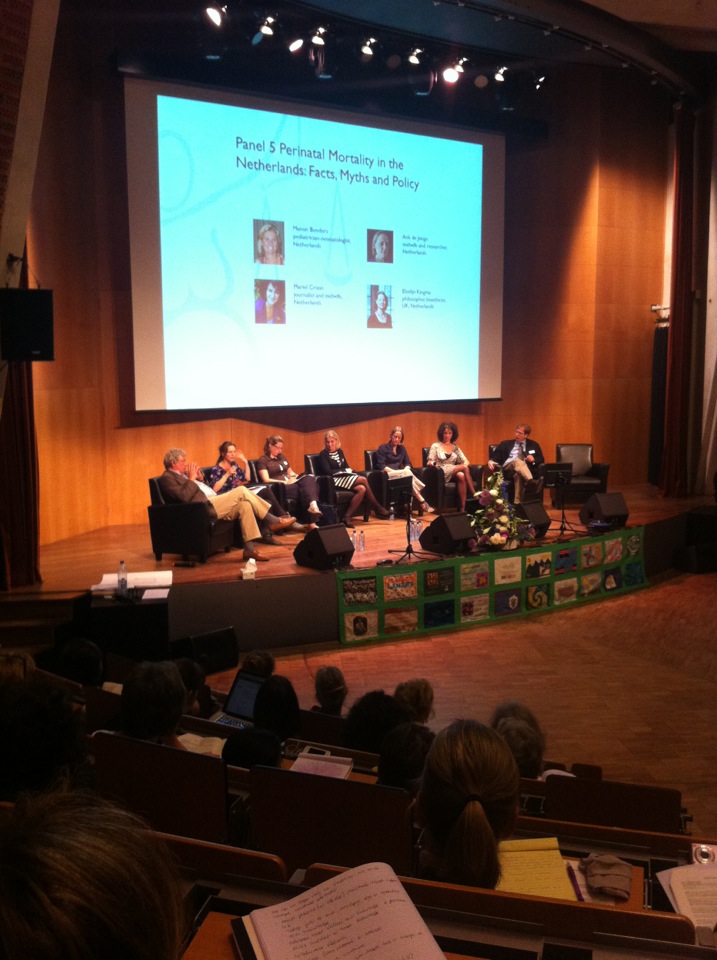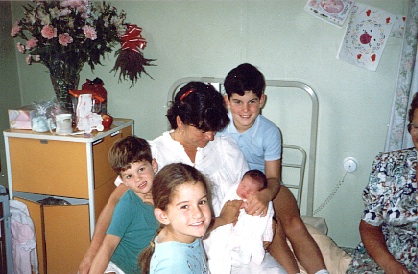Home Birth in the Netherlands......back to the future?
/ Attending the second day of the Human Rights in Childbirth Conference in the Hague on the 2nd June was a revelation, and a remarkable opportunity. I was unable to be part of the first day, as I was travelling by car to the Netherlands for a two week stay to see our brilliant Dutch grandchildren. When I wrote about the conference previously, I didn't think I would be able to attend at all.
Attending the second day of the Human Rights in Childbirth Conference in the Hague on the 2nd June was a revelation, and a remarkable opportunity. I was unable to be part of the first day, as I was travelling by car to the Netherlands for a two week stay to see our brilliant Dutch grandchildren. When I wrote about the conference previously, I didn't think I would be able to attend at all.
It was Hermine Hayes-Klein, an American Lawyer, who developed the idea for a conference with others after researching the politics of birth in the Netherlands and USA following the birth of her two children. Women's right and authority to choose the place of birth for their baby, and to be supported in her choice was the key driver for Hermine.
The first day of the event aimed to bring attention to and focus on the issues surrounding the Ternovszky v. Hungary case. Although I thought I knew a fair deal about the horrific plight of Agnes Gereb, I learnt so much more as I absorbed the text within the conference's detailed publication.
The implications of the Ternovsky case are apparent in other countries other than Hungary, and the holding of the case offers a potential solution globally. Experts from around the world were carefully chosen and they gathered willingly to debate human rights and childbirth and explore a way forward.
Day two was of particular interest to me because of my family link with Holland, and as an advocate of home birth, midwifery and maternity care in the Netherlands has always caught my attention.
It was utterly incredible to be in Den Haag and to listen to the debate surrounding birth in this small country. I found Dr Raymond De Vries's keynote address inspirational, and I couldn't get enough of it. From Dr De Vries and then the panel of experts I heard an array of perspectives about the controversy surrounding the perinatal mortality rate in Holland, how it is higher than other European countries and proposed as one of the factors that is influencing women's decisions on where to give birth. I heard how these statistics are being challenged, and how health professionals are exploring every opportunity to understand the situation.
Another issue raised was the Dutch maternity guideline, Verloskundige IndicatieLijst (VIL) and the restrictions it increasingly imposes on women's choice to birth their baby at home. The introduction of market forces within Dutch health services and changes to how maternity services are funded is also believed to be a factor in the decline in home birth. And some suggest that some women in Holland have different priorities and are preferring to give birth in hospital...although others contest this claim.
I was particularly moved by Rebekka Visser and Marjolein Faber's address to the conference, they received standing ovations from the delegates and they gave the impression that they are forces to be reckoned with.
So what did I learn?
1. A country that has been the shining light for birth practice globally for decades is potentially under threat, and that is a travesty. I desperately hope the Netherlands doesn't follow other countries in their quest to improve.
2. I realised that during my career as a midwife in East Lancashire in the UK I experienced something special. Because...
During her address Rebekka Visser said:
To me it's of great importance to really listen to the woman - and to the way she assesses risk for herself. To guarantee absolute trust that she is the one in charge. To provide her with all the information she asks for. To be open about this towards other people.. My dream is to be able to do my work as a midwife in close cooperation with gynecologist and hospital, thus creating a network where women can be respected and supported in their choices.
I was able to provide such care. Obstetricians working closely with midwives to facilitate woman centred care collaboratively meant (and still means) that women do have a choice in home birth, birth centre birth and hospital birth...and their choice is respected and supported even if their individual needs and requests do not 'fit' a guideline.
3. That women in Holland using maternity services now and in the future need to ensure their voice is heard and maintain momentum from the conference. It is crucial.
I feel privileged to have been part of what I consider to be the cusp of a birth revolution. If you would like to learn more you can visit the conference website and consider subscribing to the webinar.
You may also wish to read comments on Twitter from the two days, and pursue the various links from the posts.
Many thanks to Simone Valk and all the conference organisers for welcoming me on the 2nd.
Other blogs about the Conference:




